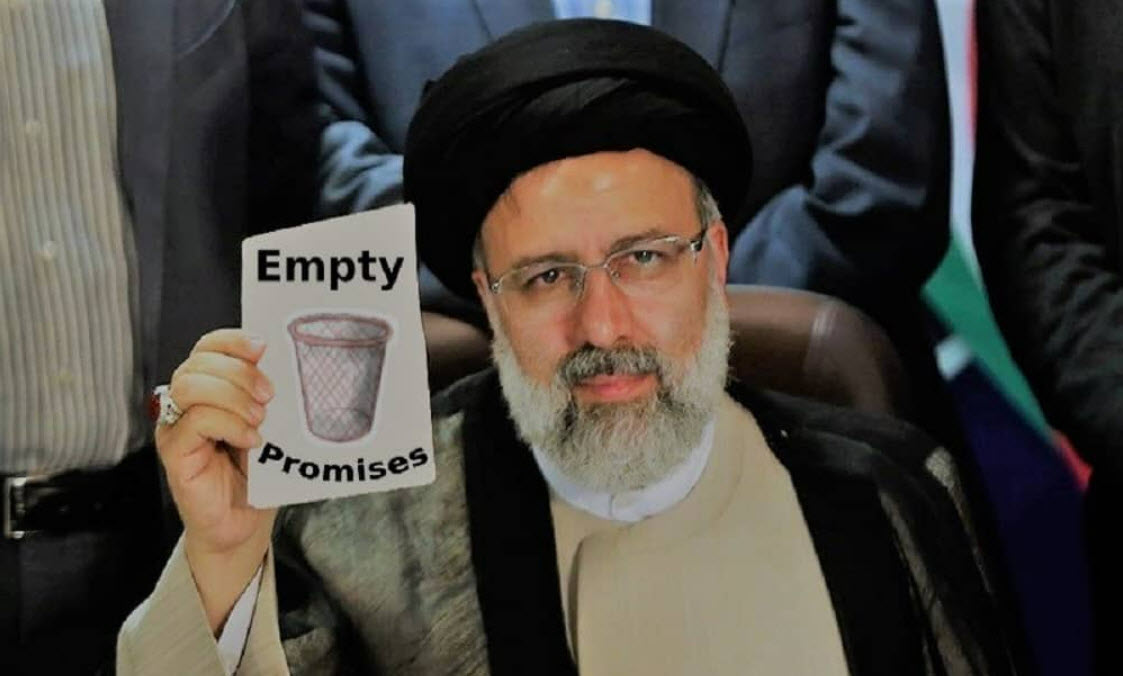
Nearly two years into his presidency, Raisi’s catastrophic policies and mismanagement have aggravated Iran’s financial crisis, leading to inflation rates exceeding 50% and soaring consumer goods prices.
However, even the manipulated statistics from Iran’s state media and institutions reveal uncontrolled inflation and unprecedented high prices. Between March 2022 and May 2023, the prices of red meat, cooking oil, sugar, and dairy products increased by 34, 32, 27, and 26 percent, respectively.

The regime’s own statistics indicate that average point-to-point inflation for food items fluctuates between 70 and 100 percent. The relentless rise in housing and public service costs have severely impacted Iranians, prompting state media and regime officials to ridicule Raisi’s exaggerated claims of controlling inflation.
The Iranian people are suffering the most from the inflation crisis, as prices for specialized medications, public transport, and milk have surged by 67, 40, and 25 percent, respectively.

Recently, news of the impeachment of Raisi’s Minister of Industry, Mining, and Business and allegations of his ministry donating SUVs to MPs to conceal corruption have made headlines. Furthermore, the government’s insolvency is apparent in its inability to repay debts to Iran’s Social Security Organization (SHASTA).
“The government always settles some of its debts to SHASTA by giving it shares of bankrupt companies. This not only doesn’t help solve the SHASTA’s financial crisis, but these bankrupted companies cause more consumption of the resources of the Social Security Organization,” the state-run Sharq newspaper wrote on May 10.
“These days everyone speaks of high inflation caused by the government’s budget deficit,” wrote the state-run Eskenas newspaper on May 1. As a result of Raisi’s devastating economic policies, housing prices are also soaring.https://t.co/SDSAnXXpDw
— NCRI-FAC (@iran_policy) May 5, 2023
Supreme Leader Ali Khamenei’s strategy of consolidating power by appointing Raisi as president and selecting MPs was aimed at countering potential uprisings, not addressing economic challenges. However, Raisi’s ineptitude in handling basic crises has only fueled public protests and animosity towards the regime. Coupled with the ongoing nationwide unrest, the likelihood of the system’s rapid collapse is increasing.
 MEK Iran (follow us on Twitter and Facebook), Maryam Rajavi’s on her site, Twitter & Facebook, NCRI (Twitter & Facebook), and People’s Mojahedin Organization of Iran – MEK IRAN – YouTu
MEK Iran (follow us on Twitter and Facebook), Maryam Rajavi’s on her site, Twitter & Facebook, NCRI (Twitter & Facebook), and People’s Mojahedin Organization of Iran – MEK IRAN – YouTu







